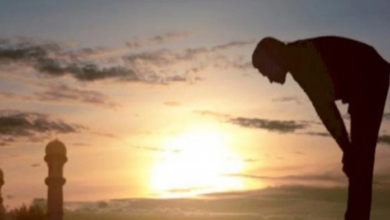Polish Tartar Muslims Revive Islamic Identity

 The small green building was visible in the middle of the towering trees. Getting closer, the building looks like a mosque. Sure enough, this building made of wood has three mini towers whose ends have a crescent moon. It turns out that this mosque is the oldest building in the region.
The small green building was visible in the middle of the towering trees. Getting closer, the building looks like a mosque. Sure enough, this building made of wood has three mini towers whose ends have a crescent moon. It turns out that this mosque is the oldest building in the region.
Not far from that place, was a remote village. The village is located right on the border of Liuthania and Belarus. This is the settlement of Muslim Tatars who have settled for centuries. Here, they try to revive the ancestral culture that was eroded by time, immigration, assimilation and oppression.
The Polish Tartar community mostly resides on the border of Liuthania and Belarus. They are of mixed Slavic-Turkish descent. However, they no longer speak Turkish. They also celebrate Christmas, marry non-Muslims, consume pork and alcohol. Even so, they still claim to be Muslim.
At the green mosque, they tried to restore their identity as a Muslim. It's not easy. Because, the pressure on them is so great.
"We are not able to carry out the belief properly. It is different from other religious communities who are so free, "said the Imam of the Green Mosque, Janusz Aleksandrowicz, as quoted dailystar.com (30 / 1).
Janusz expressed his hope that the new generation of Tartars could master Arabic Al-Quran and Hadith. Thus, the spiritual quality of future generations is maintained.
Janusz's hopes were at least starting to materialize. The Muslim Tartar community received a subsidy of 1.77 million dollars to build a cultural and religious center. The fund is a donation from the Polish and Belgian governments. Recently, Saudi Arabia has also started providing assistance by sponsoring Tartar Muslims to go on the pilgrimage to Mecca.
The ancestors of the Tatar warriors began to settle in Poland-Lithuania in the 14th century. In the beginning, their numbers were quite large. However, it quickly shrank after tragedy struck Poland in the 20th century.
Dzenneta Bogdanowicz, a Tartar Muslim who owns a restaurant near the mosque, said little was left of the culture. He said Tartar culture would not be sustainable without Islam.
"We tell them who we are, explain that our religion is Islam. A religion that brings peace, "he said.
Gebicki, another Muslim Tartar, argues that with the acceptance of Poland's membership in the European Union in 2004, strong economic growth and an increase in domestic tourism, there is hope that Tartar culture will revive. (Daily Star / Republika). *



